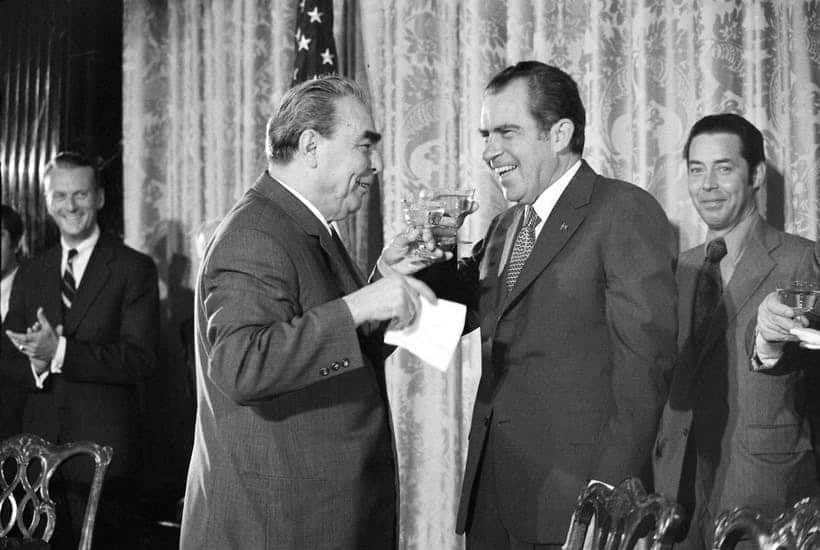For thousands of years, humans have been embracing the effects of alcohol. In Ancient Greece, for example, the art of wine making was perfected as early as 2000 BC, with a Goddess even devoted to the alcoholic beverage. Meanwhile, In India, people were distilling a drink called sura from rice almost 1,000 years earlier. Similarly, the Babylonians had a wine goddess of their own and regularly drank to her health from 2700 BC onwards. In many ways, alcohol was the great leveler; it wasn’t just the lowest classes of society who drank to get drunk, kings, queens and rulers did too. And they have carried on doing so ever since. It’s far from surprising, then, that key moments in world history occurred while the protagonists were under the influence.
In some cases, alcohol was a blessing, helping notable individuals from history achieve greatness. At other times, of course, it was more of a curse, causing chaos. Either way, the place of booze cannot be ignored. And so here we have just ten episodes from world history where alcohol played a part. Sit back, pour yourself a cold drink, and learn more…

The Battle of Stones River
On the final day of 1862, the two armies contesting the American Civil War met outside of Murfreesboro, Tennessee. They came together soon after the Battle of Fredericksburg, a major Confederate victory. The Union army was in desperate need of some good news. And, luckily for them, the final, and decisive, battle of the Stones River Campaign, saw the Union’s forces facing men led by Benjamin F. Cheatham, a wild, reckless alcoholic.
The battle was very bloody indeed. Of all the significant battles in the whole Civil War, that of Stones River recorded the one of the highest percentages of casualties on both sides. Cheatham’s actions were a significant contributing factor here. Throughout the day, he was observed as acting foolishly and recklessly. He would give orders one minute and then ask for the opposite thing a minute later. Tragically, it seems that his foolhardy ways on that fateful day sent many men to their death. Cheatham would order charges that were poorly-coordinated – if they had been thought through at all – and so doomed to fail.
General Braxton Bragg, the Confederate army’s man in charge on that day, had a plan. And he almost pulled it off perfectly. His specially-timed charges led to significant numbers of Union soldiers surrendering and being taken captive. However, some Civil War historians argue that Bragg’s plan would have been an even greater success had it not been for Cheatham’s drinking. According to some accounts, the Major General not only got his men into position behind schedule but, when it was time for them to charge, he fell off his own horse.
Cheatham’s booze-fuelled failure meant that the Union Army had enough men to make a stand and hold the position for two days. In the end, and on the third day of the battle, the Union artillery did their job, killing an estimated 1,800 Confederate troops in less than an hour. While the Battle of Stones River was not exactly a Union victory, it certainly was a Confederate defeat. Moreover, it gave the Union a much-needed morale boost they would take with them into future fights.
Defenders of Cheatham argue that, while he was certainly fond of a drink, and while there can be little doubt he was sometimes under the influence while leading men into battle, the story of Stone Rivers has been wildly exaggerated. They argue that the main source for Cheatham falling drunkenly from his horse was the army chaplain, a man by the name of Dr. Charles Todd Quintard. Not only was the doctor a friend of General Bragg’s, meaning he might want to shift the blame from the man in charge, but he was also vehemently opposed to drinking. Could it be that he used the battlefield fiasco to further his own agenda?

